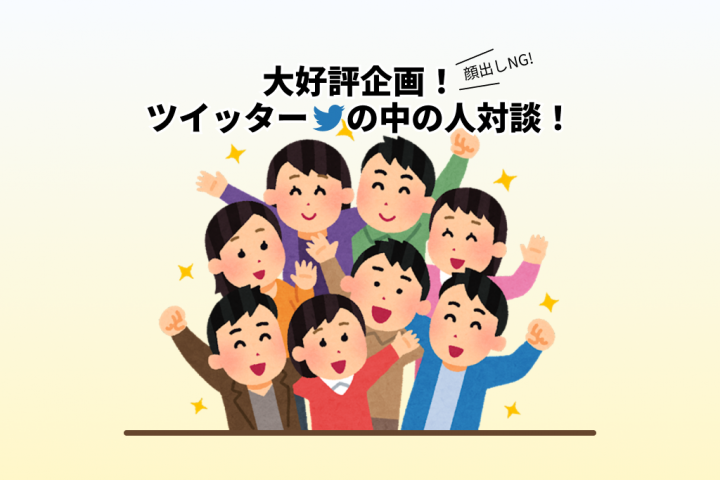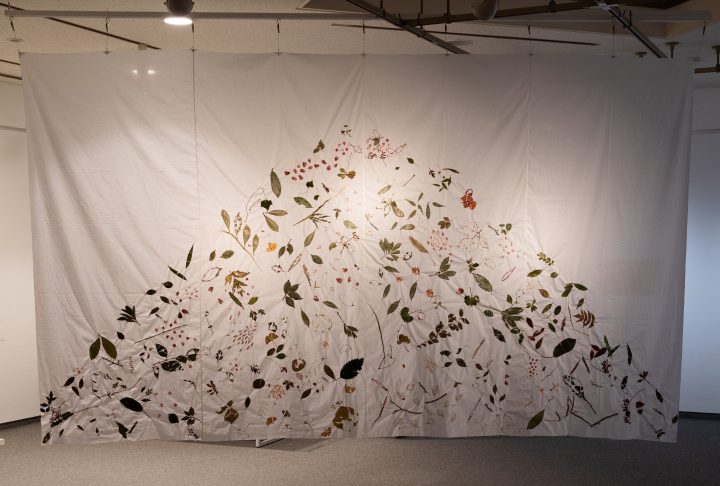English and early childhood education: Pursuing my passion and turning it into my calling
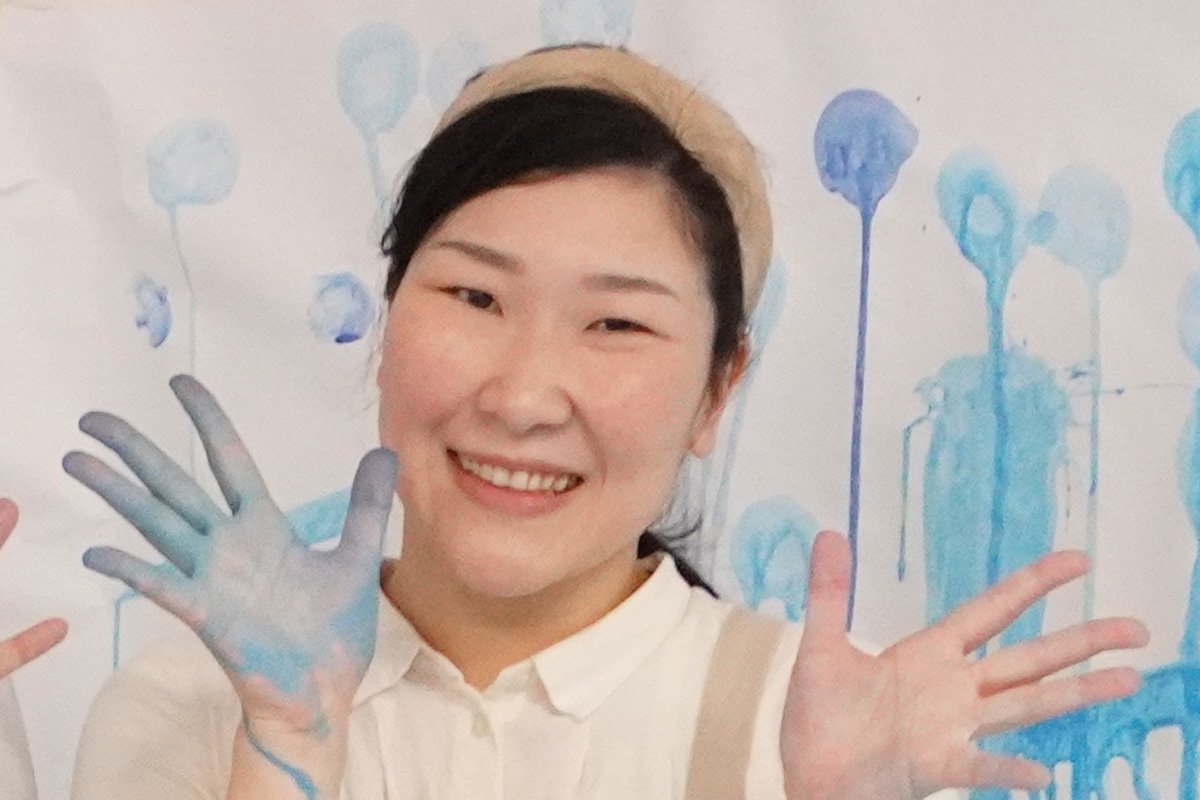
Hitomi Ikeda started her own business, making use of her love and talent for languages since childhood, and her knowledge of intellectual education, which she developed an interest in after giving birth. We spoke to her about her business, "Asobumanabiya," a preschool that incorporates everything she has learned, including childcare, languages, art history, and work experience.
Current Activities
-What kind of activities are you currently involved in, Mr. Ikeda?
She runs an art and English preschool called "Asobi Manabisha," mainly in Ebina and Zama cities in Kanagawa Prefecture, and sometimes uses online classes.
We hold events such as "Messy Play in English," where children can become familiar with English while playing without worrying about getting dirty with paint or powder, "English Eurhythmics," which combines English and eurhythmics, and "Asobi STEAM Online," a STEAM education program that allows children to learn naturally while playing.
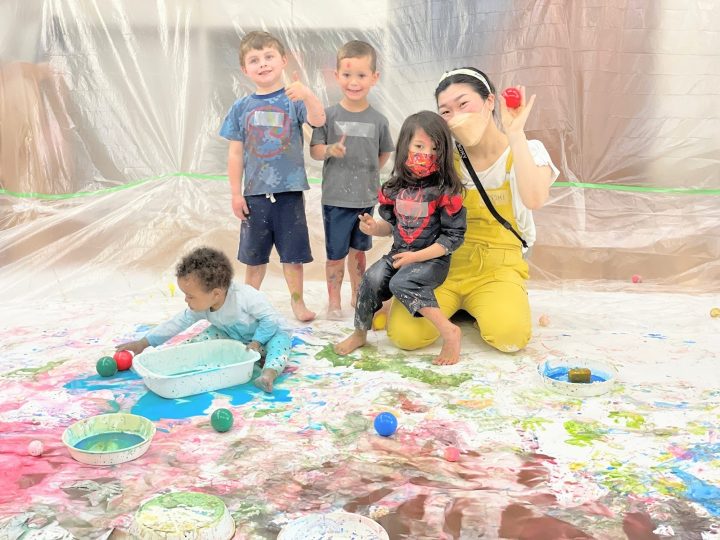
-What is it about?
Messy play is a game devised by Aida Natsuho of the Japan Association for Infant and Toddler Play Education, incorporating elements of Montessori education, the Reggio Emilia approach, and Steiner education.
Messy play is full of artistic elements. Children can touch, smear, mix, tear, and make a mess with various materials like paint, powder, and paper... it's a type of play that's hard to do at home. Asobi Gakushusha offers an original lesson called "Messy Play in English," which adds English to messy play.
At "English Eurhythmics," we offer a lesson called "AMUSE Play," which combines the three elements of art, music, and English. In addition to myself, we also have a eurhythmics and piano instructor, so the lesson is run by two instructors.
During my time as a company employee, I found it difficult to balance work and child-rearing
- Messy play is becoming increasingly recognized in early childhood education, and you've also incorporated English into it. Have you always liked languages?
When I was little, I was allowed to attend English conversation classes, and then when I was about to enter junior high school, I went on a two-week homestay in Australia. I have always enjoyed learning and speaking foreign languages.
At the recommendation of my cram school teacher, I decided to apply to a department other than English for university entrance exams. Since I had always loved art, I decided to major in French at university. I was happy to be able to read a language I didn't know.
-You continued to hone your language skills at university, but what about finding a job?
At university, you spend the first two years learning the basics of languages, and the last two years branching out into a specialized field in order to write your graduation thesis. When I thought about finding a job, I aimed to become a museum curator, a job in art that I have loved since childhood. Since it is difficult to become a curator with a four-year bachelor's degree, I also went on to graduate school.
However, in reality, there are few art museums and no openings for curators, and even if a position becomes available, it may not be at an art museum that deals with the field in which you specialize.
-There aren't many positions for art museum curators.
It seems that many people wait for a position to open up as a curator while obtaining a PhD or becoming a fixed-term researcher (postdoctoral fellow), but I thought it would be rude to keep waiting for that to happen, so I got a job at a regular company.
There were drinking parties every week at work, early mornings, late nights, and crowded trains. I just couldn't imagine myself working while pregnant and raising a child, so after working there for about three years, I changed jobs. I worked for two companies while married.
Learning about intellectual development makes difficult child-rearing fun
What first sparked your interest in intellectual education?
Childcare was a completely unknown world to me. I learned how to bathe a baby and change diapers at government-run mothers' classes. However, I realized that what the government was teaching me was only a small part of childcare, and that's when I discovered intellectual education.
While pregnant with my first child, I learned about various educational methods, including home daycare and Montessori education, and I was looking forward to raising my child after giving birth. Of course, taking care of a baby is hard work, and even though I have ideals for things like sleeping hours and toilet training, it's difficult to follow parenting books exactly.
Of course, not everything in intellectual education can be done according to theory, but there are some aspects that will work if you try, which is a relief.
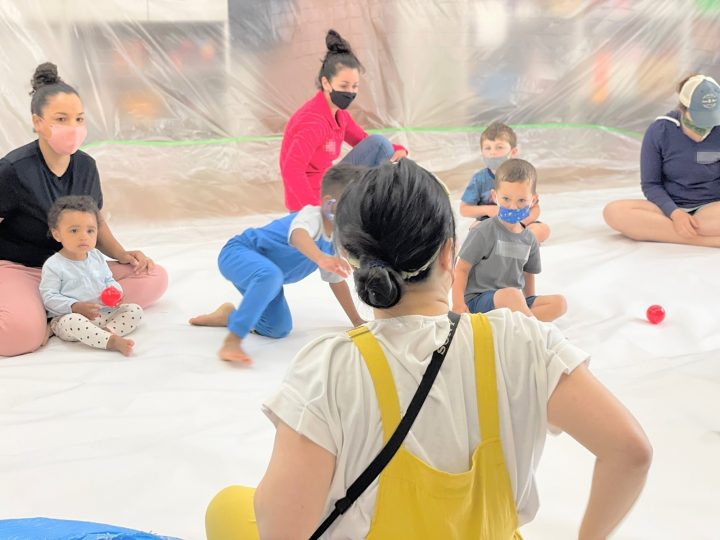
-It's wonderful that you can look forward to it. Was it difficult to study educational materials and take courses from certified instructors while having children?
I think the difficulty of raising a child varies depending on the child's personality, but my eldest son doesn't sleep much. As this was my first time raising a child, there were many things I didn't understand, so when I started learning about intellectual development, it was to help me raise my own child.
After that, my second son was born, just two years younger than me. This time he was a good sleeper, so I had a bit more time to think about whether I could work in intellectual education.
Searching for ways to work while caring for family
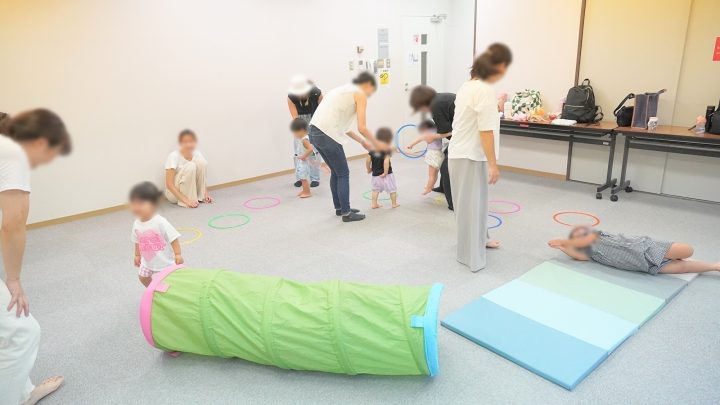
-Do you plan to continue working even after becoming a mother?
I had always wanted to work, so I took a course to become a translator while I was pregnant, but I learned that it would be difficult to get a job without work experience.
While I was raising my eldest son, I didn't have much time and couldn't go out much, so I felt increasingly lonely at home. I was always searching for a job and a way to be recognized as a member of society.
-I heard that you started studying for certified instructor qualifications three months after giving birth to your second child.
That's right. As I was sorting through my desire to work, my current interests, and the things I've loved since I was little, I was left with languages, art, and intellectual education. It was just the right time for me to come across "Gucha Gucha Asobi," which combines elements of art, early childhood education, and play.
Immediately after giving birth to my second son, I applied to become a certified instructor for the 4th class of Gucha Gucha Asobi. The content was so engrossing that I forgot to eat or sleep, and I sympathized with the philosophy. I am still working hard with my fellow instructors.
Learning English using textbooks is good, but some children may come to dislike English. It's easier to learn if you incorporate it naturally into play from an early age. I created a course that is unique to me by incorporating English elements into messy play that parents and children play together.
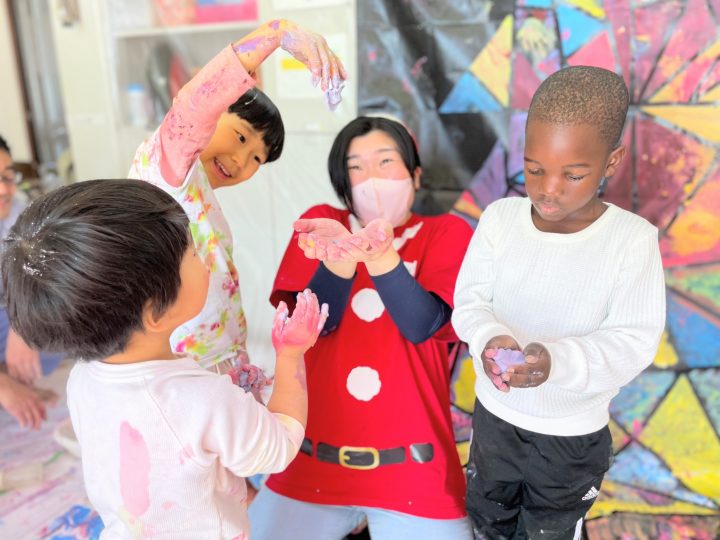
Since the Zama classroom is located close to a US military base, we also hold "All English Messy Play" events where students can play with friends from all over the world.
Additionally, "Asobi STEAM Online" provides online STEAM education that combines science and art for children aged 3 to 8, and I am the homeroom teacher for the English class.
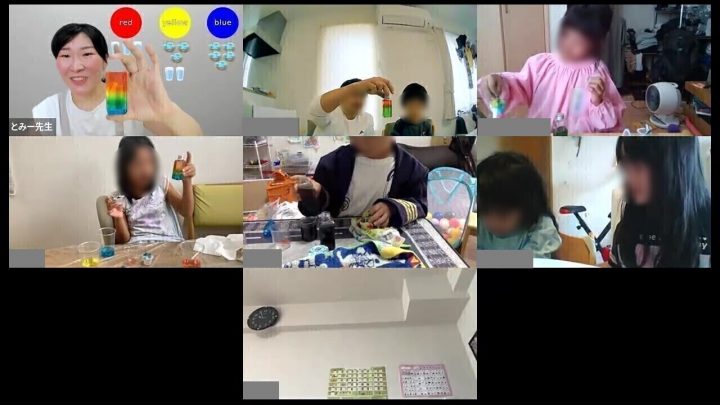
English is the most widely spoken language in the world. The benefit of learning English from an early age is that there is a huge variety of English content to choose from, such as anime and science content. Learning to speak English at a young age allows you to enjoy content from all over the world and broadens your horizons.
Mr. Ikeda's future
-How do you feel about actually starting your own business?
I feel that mom entrepreneurs have a strong desire to do things for their children and for other moms, which stems from their own lives. Their strength is their ability to respond to niche demands that are difficult for large companies to meet.
My current job is a life's work that I want to cherish.
I can contribute to society while caring for my child and my family. It's something I love, so I enjoy thinking about what I can do to help children grow up, even outside of work hours.
-Finally, please tell us about your future dreams.
I love English, and I want to continue teaching it for as long as I can. In the future, I would like to expand my content to include "English and Science" and "English and Art," and also expand the age range I teach.
Hitomi Ikeda
Graduated from Tokyo University of Foreign Studies with a major in French, and completed a graduate course in art history at the University of Tokyo.
While raising two children in Ebina City, Kanagawa Prefecture, she runs a preschool called "Asobi Gakubishya."
"A place for learning and play"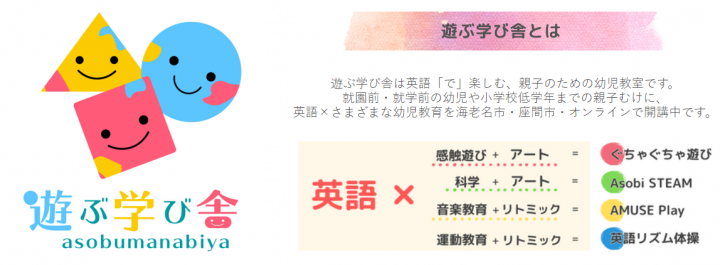
Official website here
Ameblo here
InstagramClick here
Facebook here
Email asobumanabiya@gmail.com
Official LINE ( For inquiries, recruitment, applications, and registration via LINE, click here )
<Inquiries about classes>
For inquiries about the classroom, please use the "Contact Us Form" on the official website or the "Official LINE" page.
AsobiSTEAM Online, a STEAM education program combining science and art, is currently recruiting students for a start date in April 2024.
*"Messy Play" and "AsobiSTEAM" are trademarks of the Japan Association for Infant and Child Play Education.

